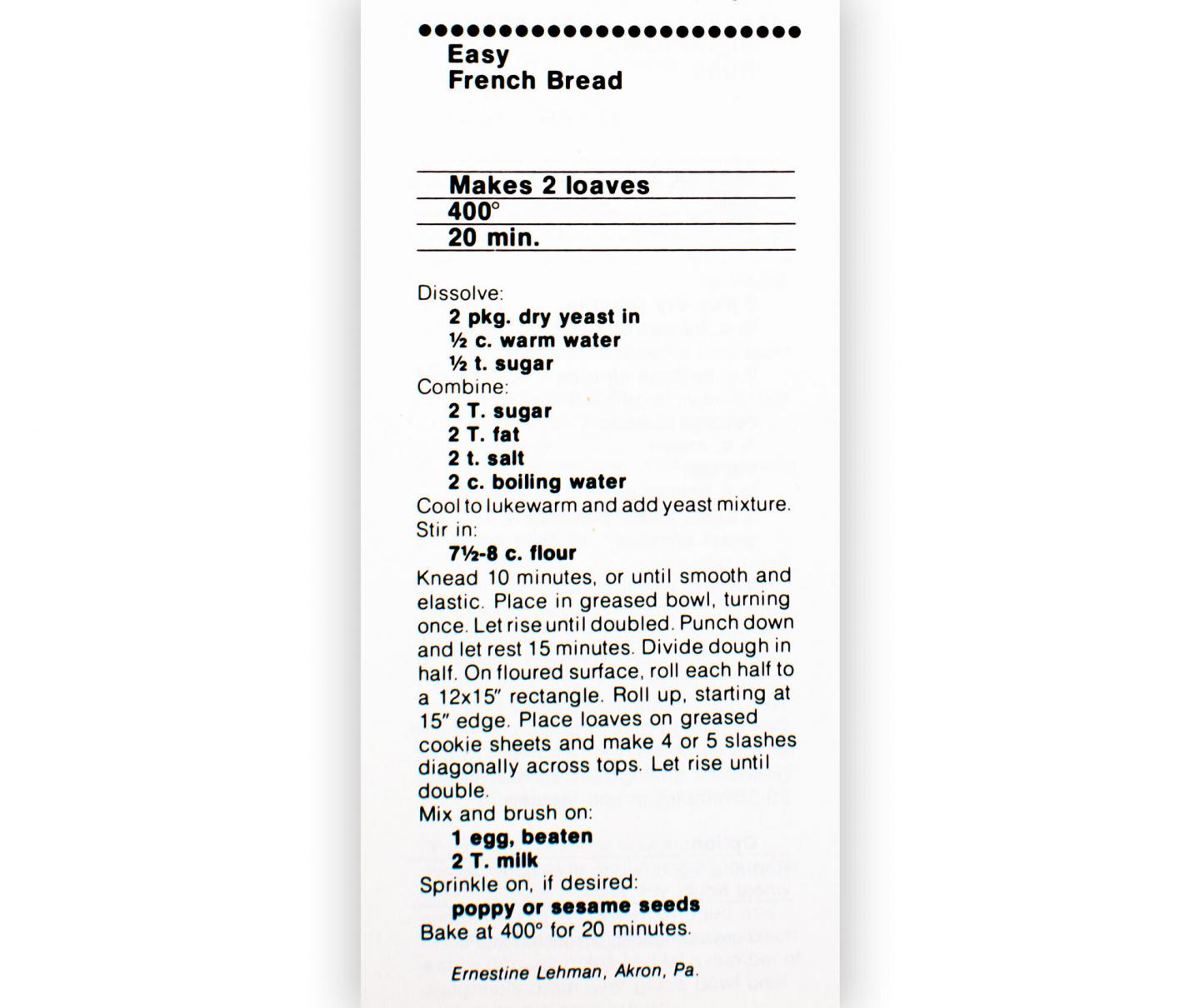'Bread, in God's name, bread'
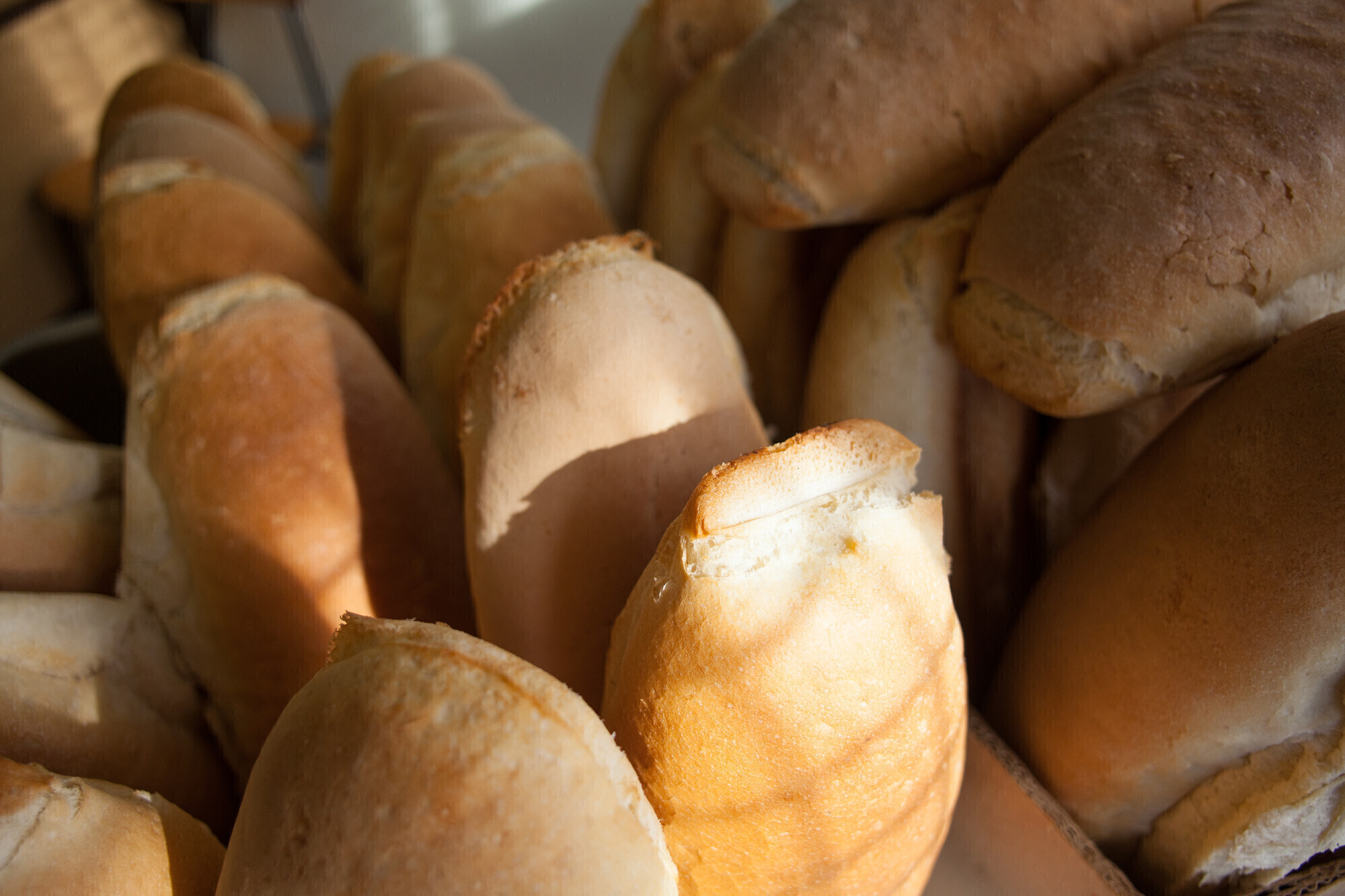
MCC was formed to answer the call for bread – responding to the needs of communities starving in southern Russia (present-day Ukraine).
And through the decades, bread has remained a powerful part of our work around the world. We invite you to explore the hope that MCC has seen bread bring in communities across continents.
…for I was hungry and you gave me food, I was thirsty and you gave me something to drink, I was a stranger and you welcomed me…”
Matthew 25:35 NRSV
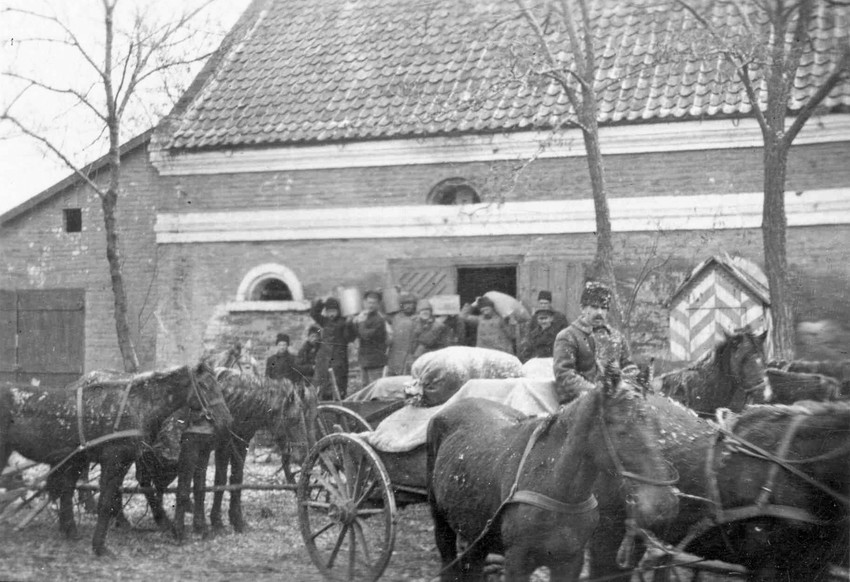
MCC began by answering the cry for bread in the 1920s in southern Russia (present-day Ukraine)...
“At the railroad stations, the sight was appalling. The moment the train halted it was besieged by living skeletons. Not with a rush did they come, but slowly, weakly … muttering the one sentence that was being wailed despairingly by millions in Russia: ‘Bread, in God’s name, bread!’” -MCC worker A.J. Miller, 1922
MCC’s first relief kitchens opened in Khortitsa on March 16, 1922, providing bread every day, cocoa twice weekly, beans once or twice weekly and the rest of the time corn grits or rice cooked with sugar and milk. The 1922 photo above shows a warehouse in Khortitsa, where relief supplies were stored. Groups came from the surrounding villages to pick up the supplies.
A few months earlier, late in 1921, the first supplies had begun to trickle in.
“It was a Christmas gift such as none of them, or us, had ever seen before,” Miller recalled. “Not candies, or sweets, or nuts, or fruits, or toys, but that for which every man, woman, and child in those villages was most earnestly wishing – BREAD! Just Bread. It came almost miraculously from far away America, from friends they had never seen or known.... It was love reaching out its strong hands across the waters and the plains; across oceans and continents.”
...and in Europe after World War II.
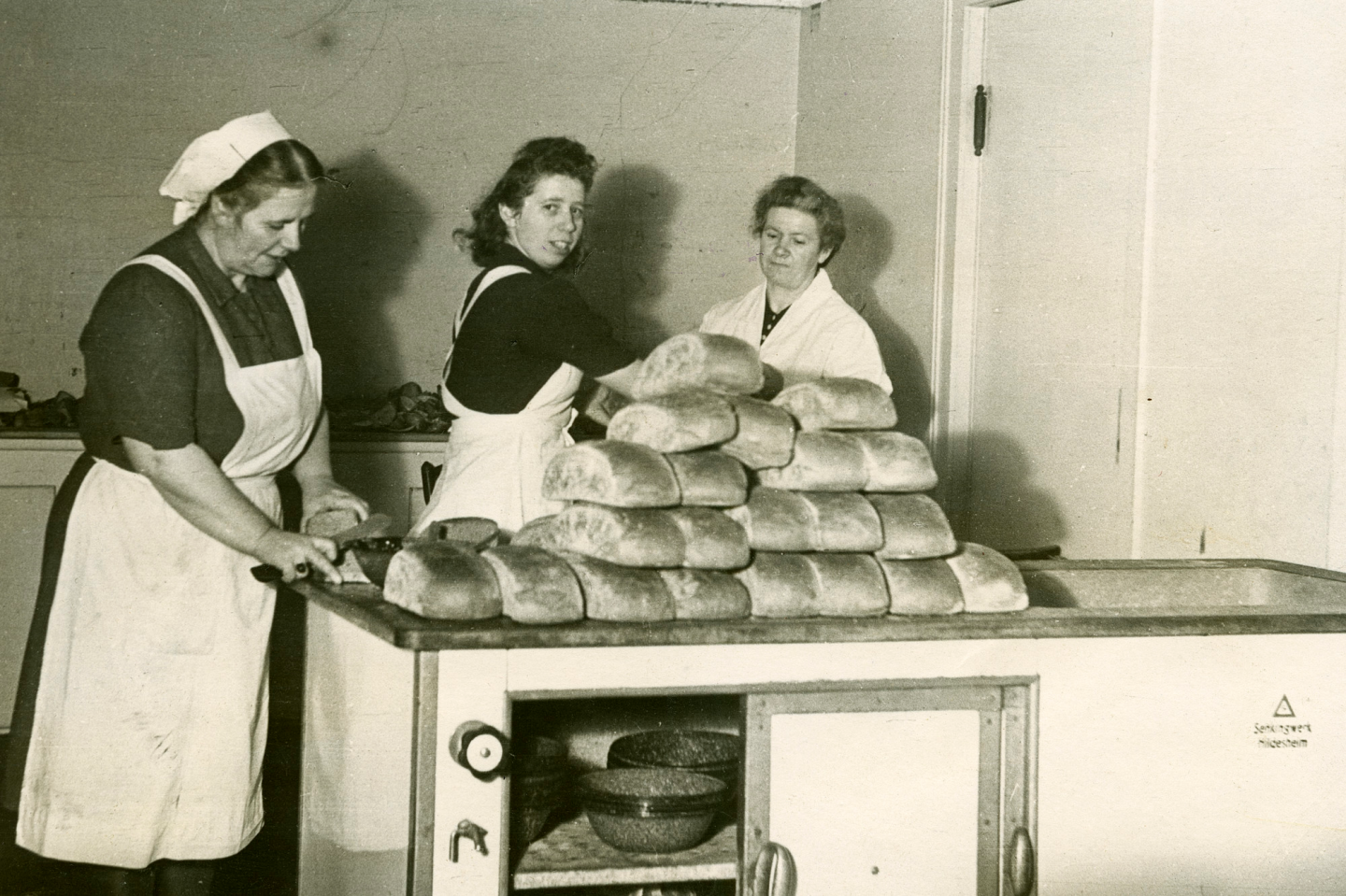
In Hamburg, Germany in 1947-48, bread baked in operations like these was an important part of MCC's food distributions, helping to meet urgent needs after years of war.
"When we left (the U.S.) we thought we were entering in on the wind-up of an emergency program, but today it appears that the need in Germany is greater than it has ever been and the situation is apparently getting worse," MCC workers Marie K. and Frank J. Wiens wrote in a July 1947 report. "In this beaten land we are feeding between 40,000 and 50,000 children mostly through schools or the larger cities where the children are given their portion of soup or white roll with raisin."
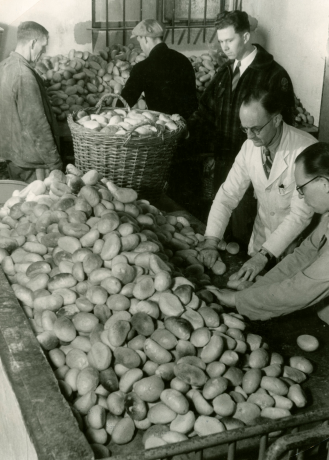
A September 1947 letter from the Wiens shows the need mounting, noting that the summer was the driest Germany had experienced in decades. With an almost total failure of crops, "Germany stands in danger of a famine which will bring death to many, and sickness to countless others ... the population fears the coming winter, and not without justification."
In the U.S. and Canada, churches were active in meeting needs through MCC. In the U.S., West Coast supporters donated supplies of raisins, which were prized in rolls and soups in Germany. Church groups in Kansas donated the flour used to make the rolls shown below in a child feeding program in Kassel, Germany in 1947.
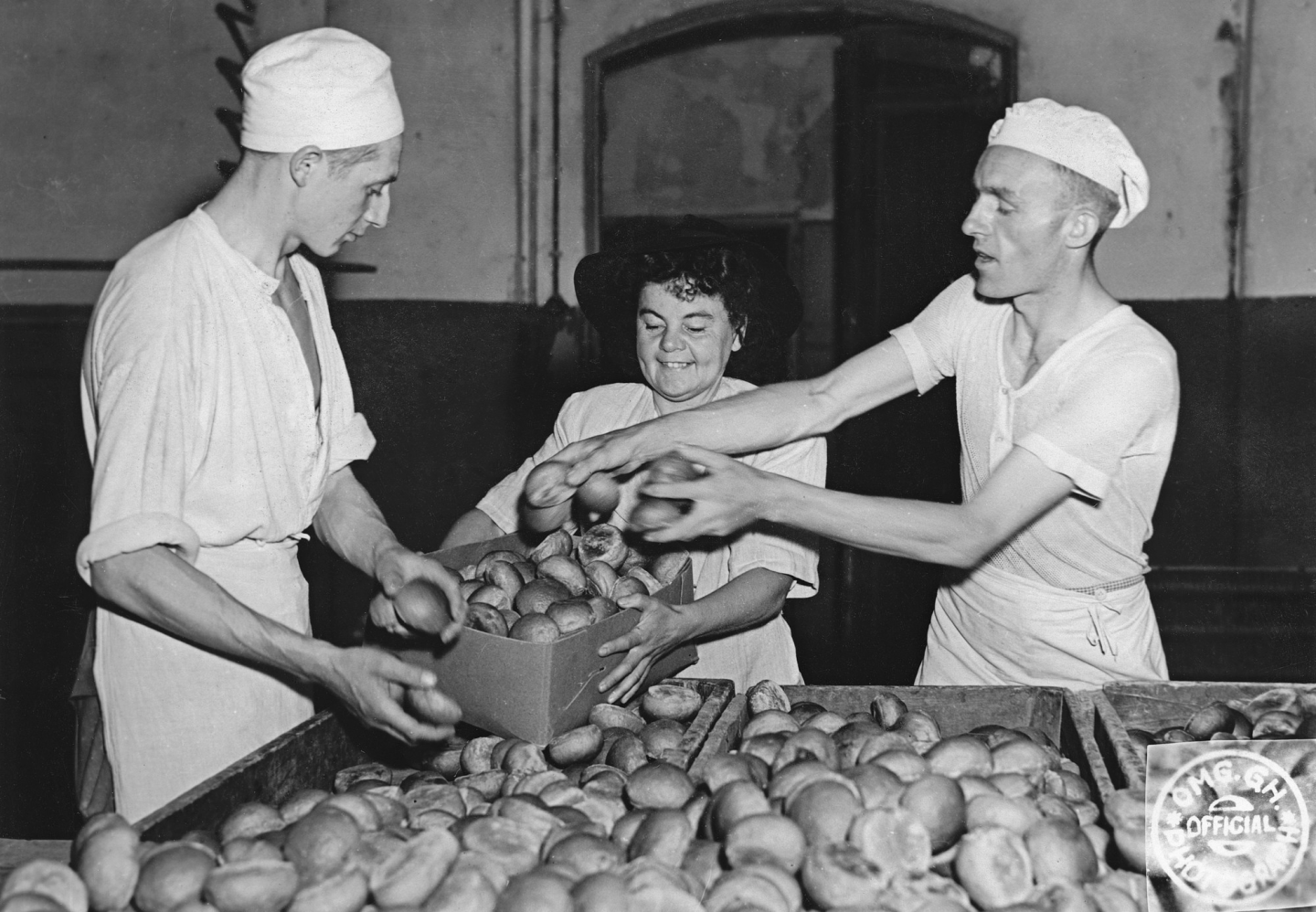
The giving was not only one way. In May 1947, MCC worker Lois Kreider reported she was forwarding to the MCC office in Akron, Pennsylvania, a package of toys made by kindergarten children in Kassel, Germany, "in appreciation for the food they have received from American Mennonites."
Bread and flour continue to play a role in the Republic of Korea (South Korea) in the 1950s...
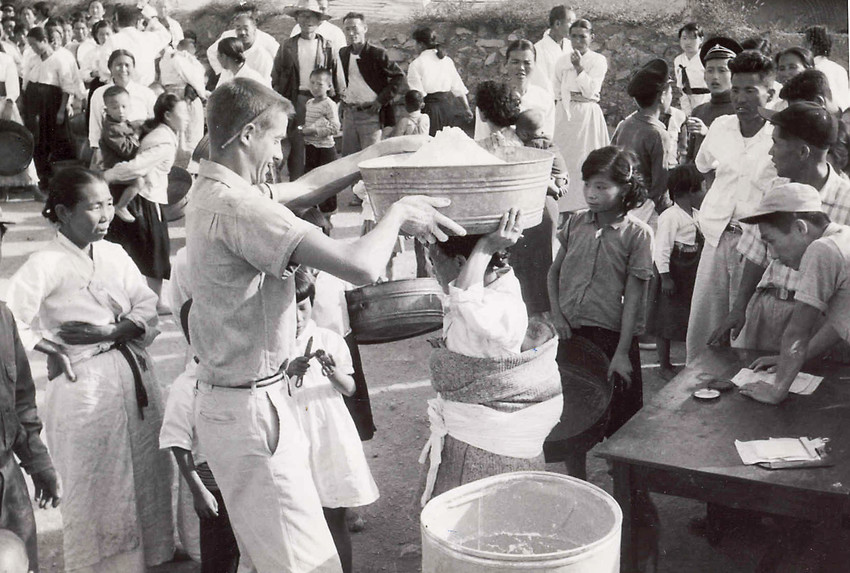
Following the Korean War in the 1950s, the Republic of Korea (South Korea) was one of the poorest countries in the world. Food, fuel and electricity were scarce and there was massive unemployment. A third of all the houses in the entire country were destroyed, as well as almost half the industrial facilities.
MCC set up feeding stations and distributed clothing and bedding, and responded to additional emergencies. In the June 1957 photo above, flour and cornmeal were distributed to those affected by storms. MCC worker Joseph Smucker, of Goshen, Indiana, helps to lift a tub of flour (weighing about 50 pounds) onto the head of a woman who is also carrying a baby on her back. Each recipient was allotted 5 pounds of flour per family member. Ahn Bu Yong, an interpreter, leans over the desk and marks off the name of the recipients.
...and in Vietnam in the 1960s.
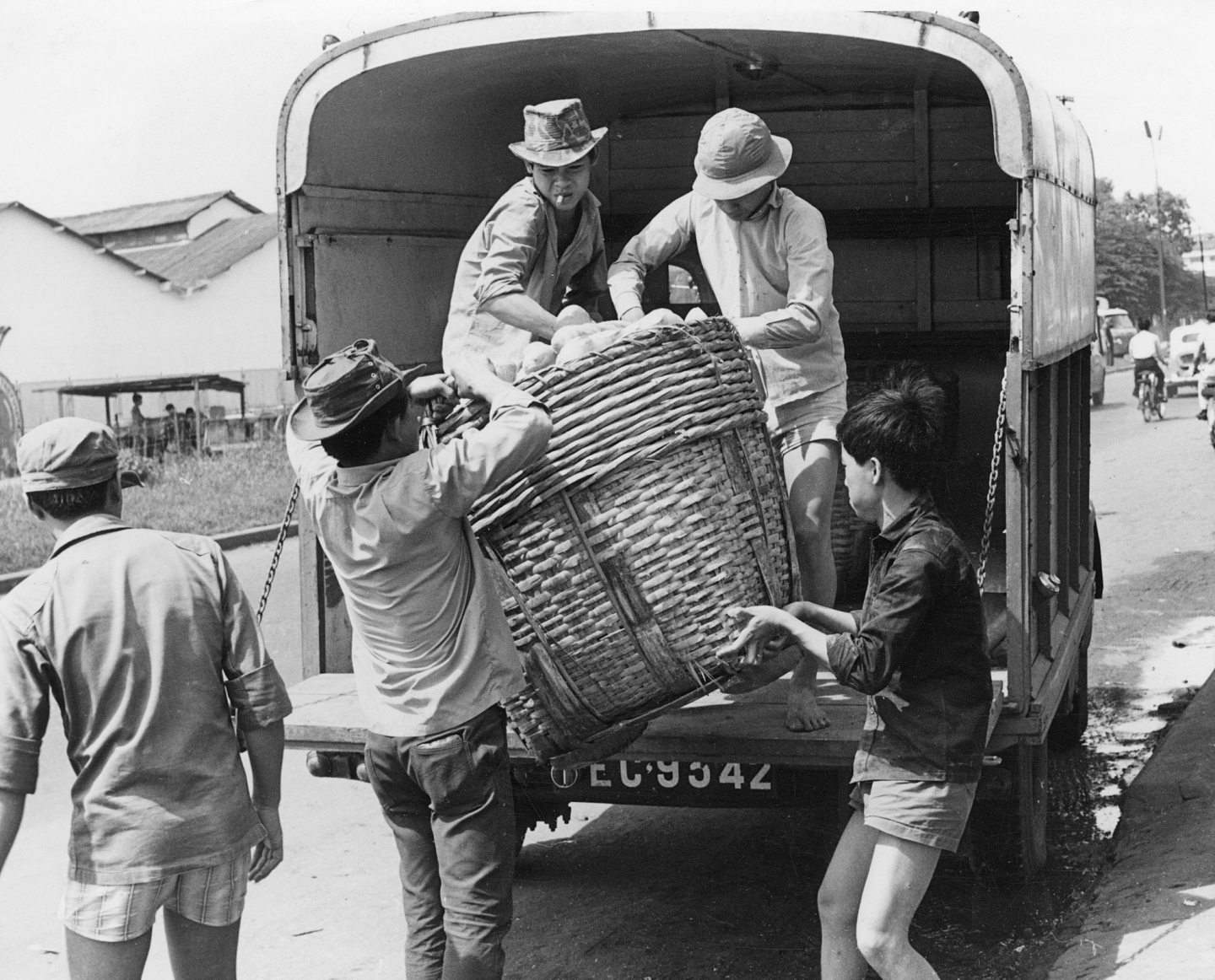
In the midst of war in Vietnam in 1965, distributions substantially increased in the city of Saigon (present-day Ho Chi Minh City) because MCC could not get transportation to the interior for large quantities of supplies. Through MCC, about 160,000 loaves of bread a month were given to families in need. Loaves of French bread were loaded onto trucks for distribution, as shown in the photo above.
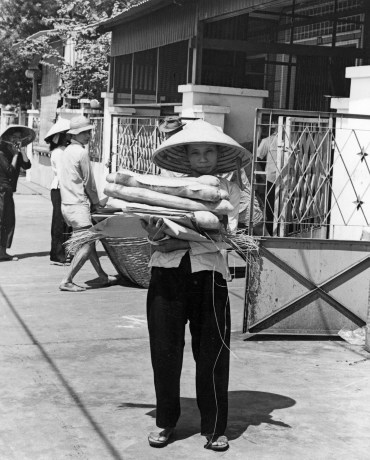
A woman (name unknown) carries her bread home. Distributions were made through Protestant churches, and additional bread was given in a school lunch program in cooperation with the Social Welfare Ministry of the government.
Bread today meets urgent needs...
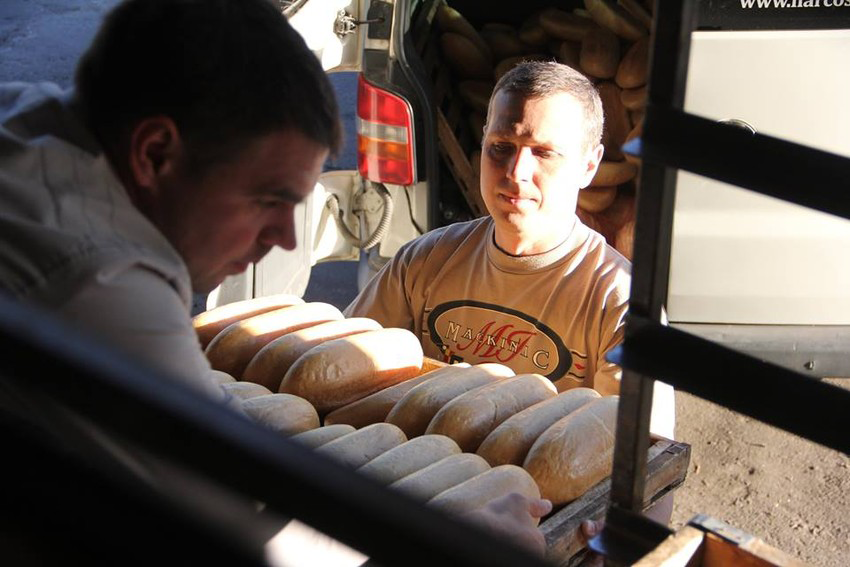
As people's lives are torn by war and conflict, bread continues to play a role in emergency food assistance. In the land where its work began, MCC provides food and assistance to people uprooted by conflict in recent years. In 2015, courageous volunteers like Vlad Makhovskiy and Dmitriy Lichiman prepared bread for distribution to people, many of them elderly, who remained in areas being ravaged by conflict.
Corn flour distributed earlier this year helps families displaced in the eastern Democratic Republic of the Congo make it through the year between growing seasons.
...and improves the health of children.
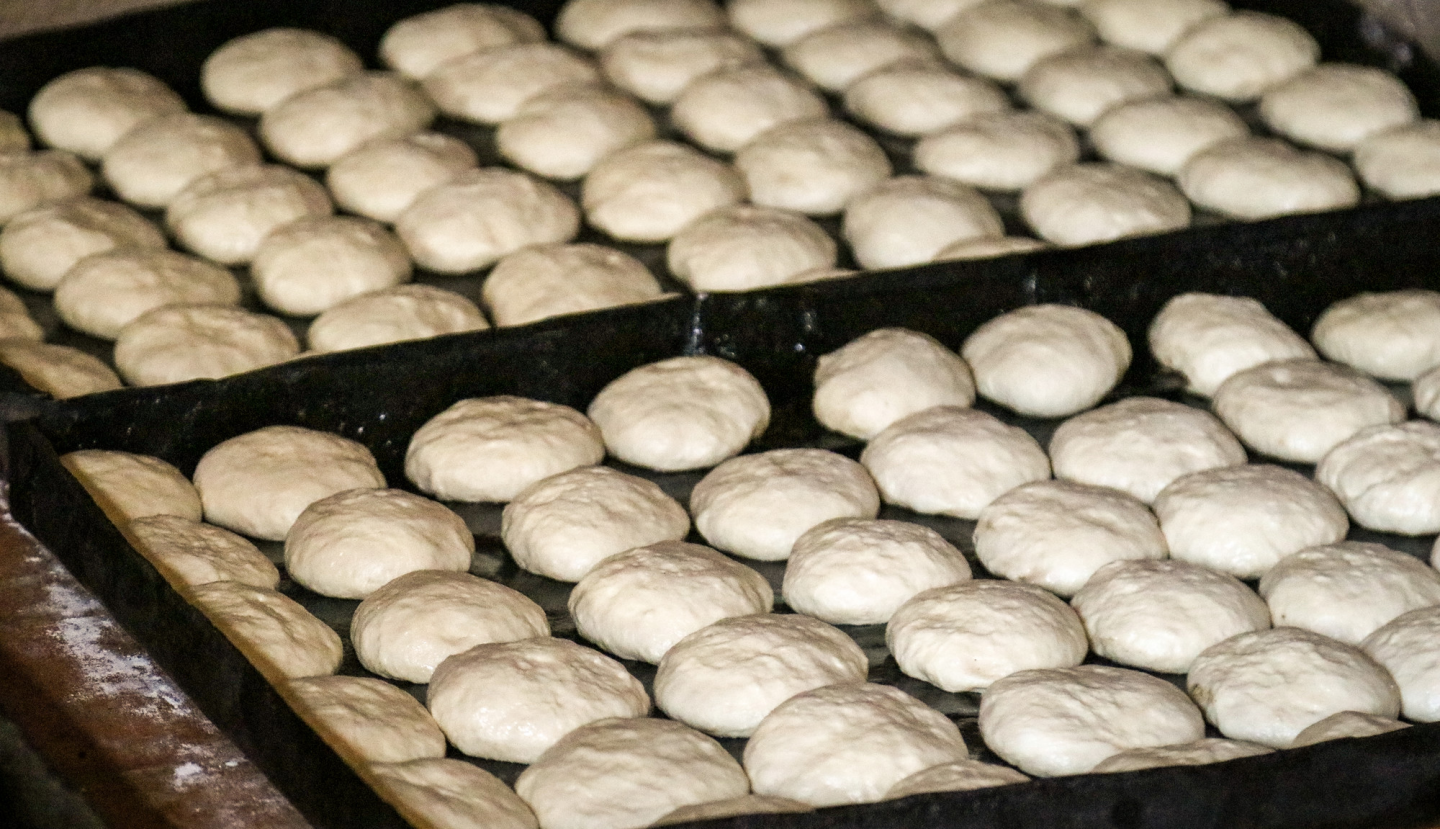
In this 2018 photo, enriched bread dough is left to rise before it is baked and served to students at Hope School in Nyangungu, Burundi. The bread is part of a daily school feeding program providing vital nutrition to supplement the diets of the school’s 515 preschool through high school students.
At Hope School, MCC provides funds for operating costs, supplies, teachers’ salaries and professional development for school staff. The nutritious school meals are included in a holistic health program at the school supported by MCC since 2016. MCC support also provides clean water and soap, sanitary supplies for girls, and home visits to help educate students and their families on nutrition and hygiene.
MCC and its partners have helped people get into the business of baking in Jordan in the 1990s...
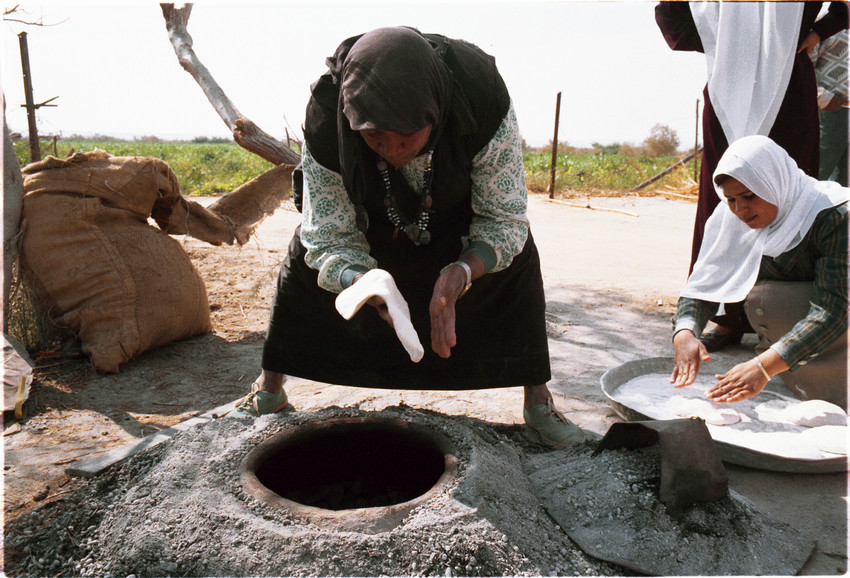
In this 1998 photo, Mariam Khalil, a widow, bakes bread at her home in Ghorsafi near the Dead Sea in Jordan. MCC helped Khalil with a bread oven and bread-baking business.
For centuries in the Middle East, underground ovens such as this one have been used to make traditional flatbreads and to cook other dishes.
...and in Bolivia today.
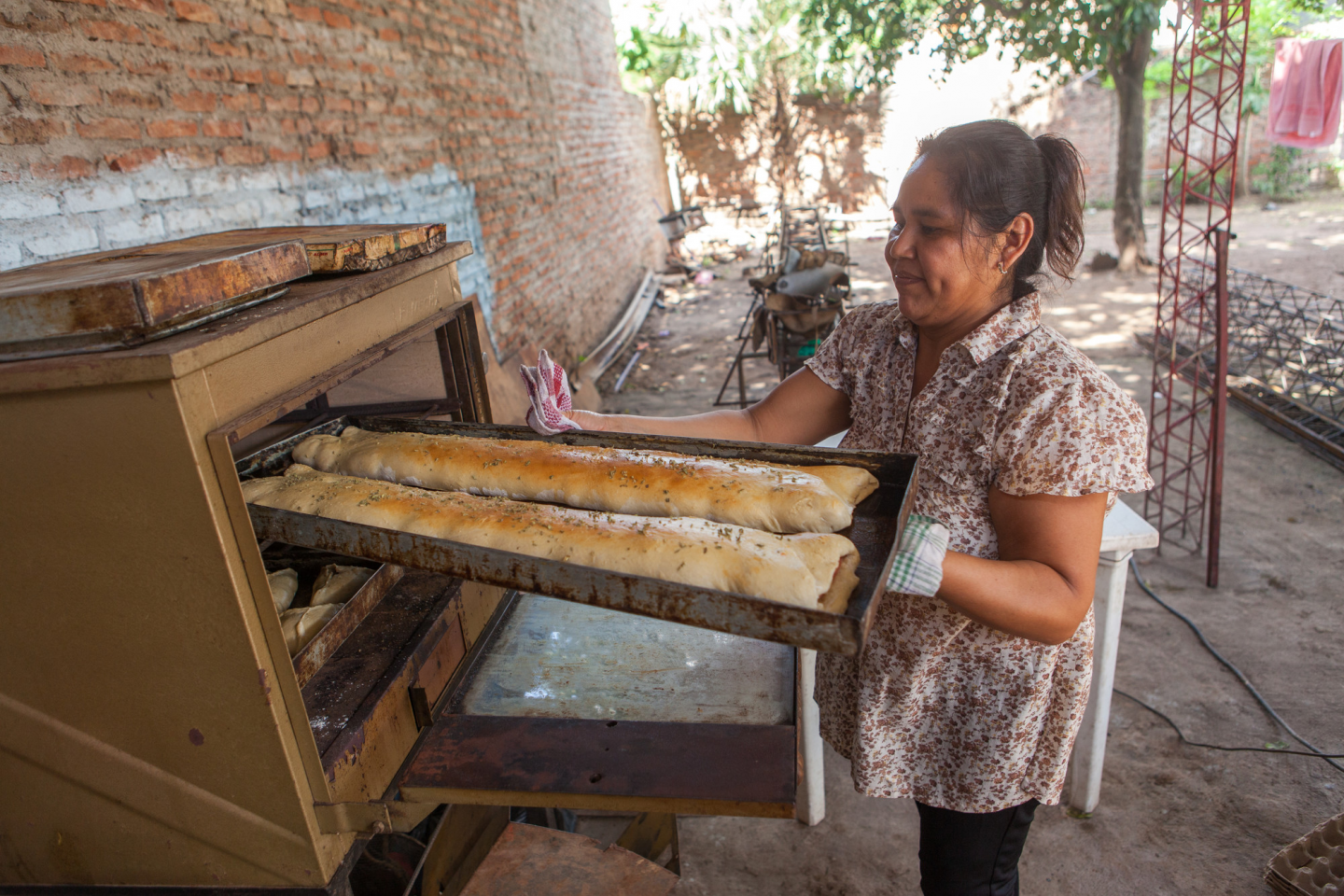
Jakelin Castillo Montero retrieves pizza rolls from her oven in Montero, Bolivia. She took cooking and baking workshops at El Comedor de Niños (the Comedor), an MCC partner, and now has her own business.She wakes at 5:30 a.m. to prepare dough for pizza rolls, doughnuts and empanadas. Later in the morning she works with the dough and prepares trays and trays of desserts and snacks.She and her daughters work together to bake and sell their products around town. And the proceeds help the family, including paying for books and some school fees for Montero's oldest daughter, who is studying law at a local university.
Bread is a highlight of celebrations...
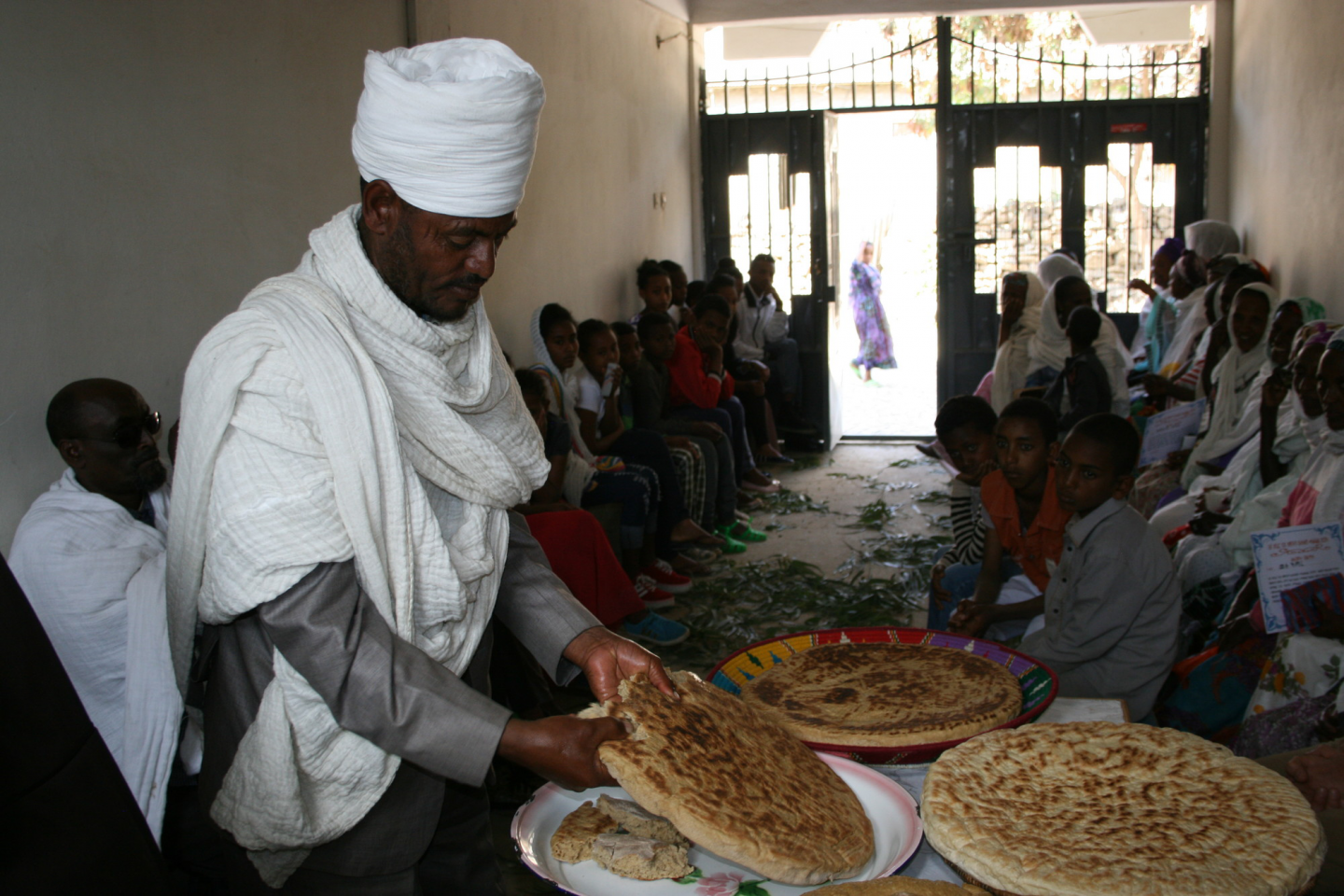
At a 2017 awards ceremony for children in the MCC-supported Anna Hofer project in Ethiopia, priest Mulu Gidey blesses the bread and serves. He is a guardian to one of the orphans in the project. MCC partners with Anna Hofer Child and Family Support Organization to provide quality education to orphans and vulnerable children in the Tigray region of northern Ethiopia.
...and part of the everyday rhythm of life.
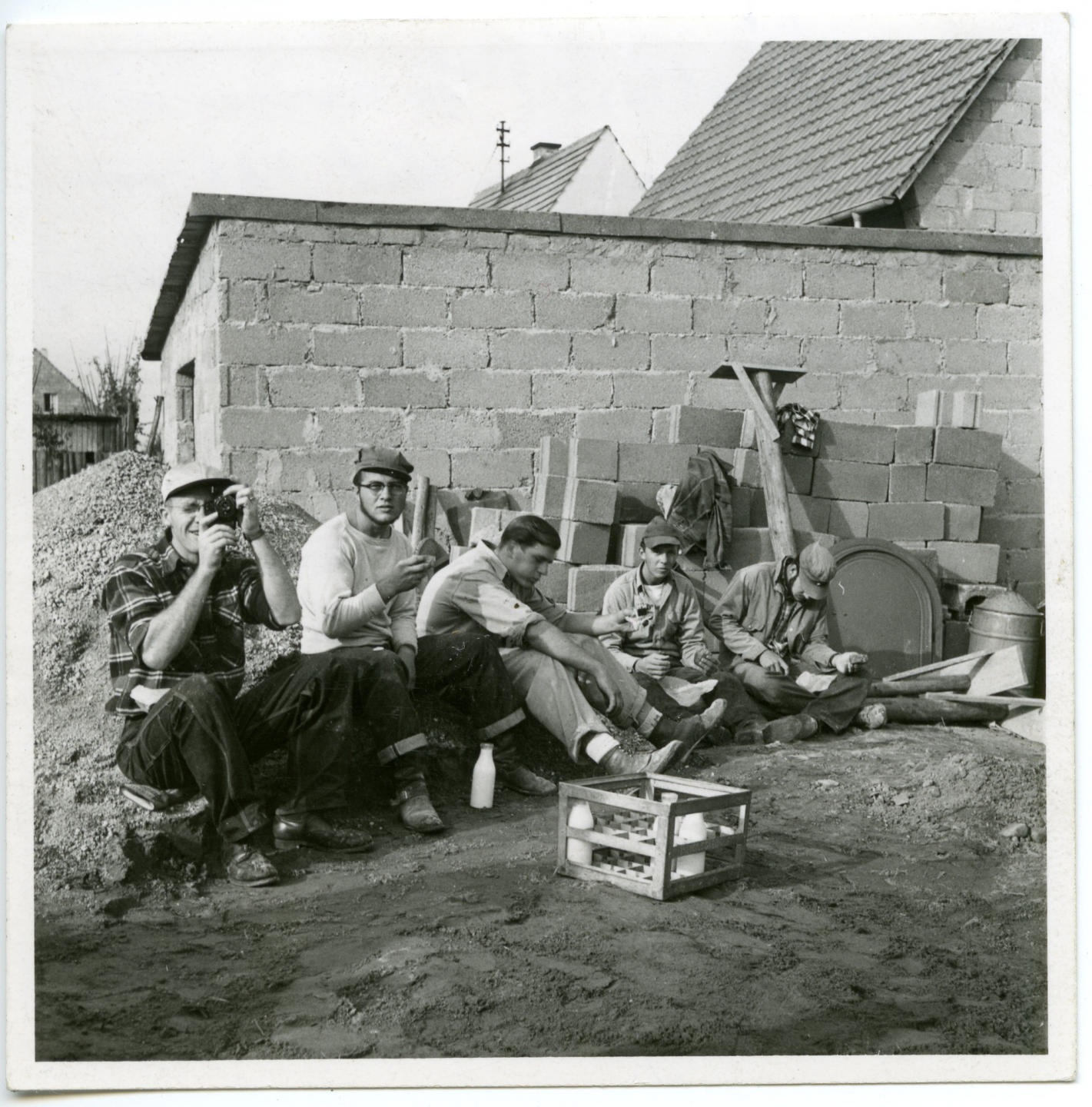
In Germany, second breakfast was so common with German workmen that participants in MCC's Pax program adopted the custom of pausing at 9 a.m. for a pint of milk and some bread and apple butter. Pictured from left are Elbert Esau, Leonard Kennel, Marion Wenger, Bill Klassen and D.J. Yoder.
It can help build peace...
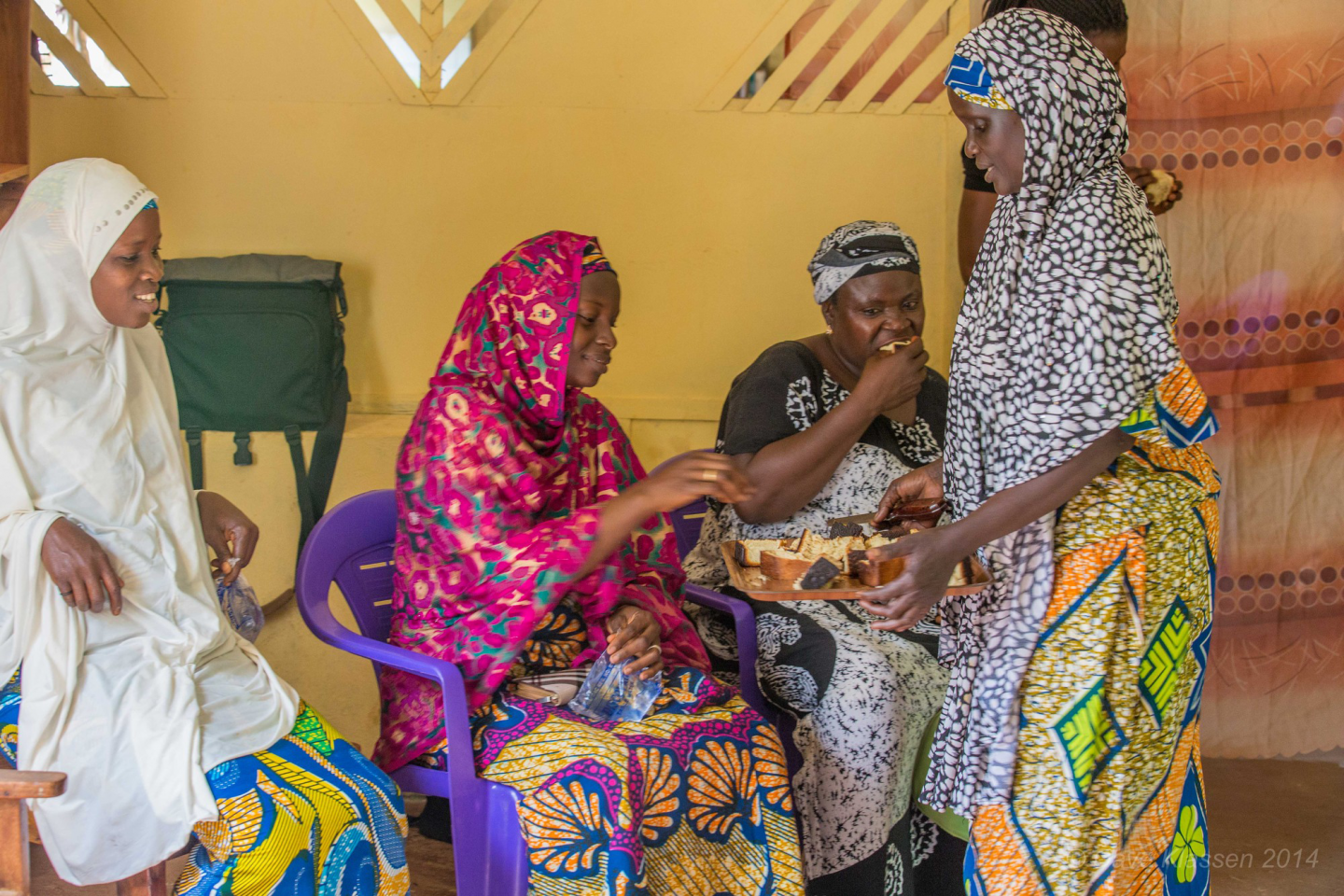
In June 2014, a month after bomb blasts rocked the city of Jos, Nigeria, MCC partner Home Makers held its monthly interfaith meeting. Through these meetings, Muslim and Christian women gather together to support and encourage each other, develop friendships and learn home-based skills necessary to generate income for their families.
June's meeting featured a bread-making lesson. In the photo above, Khadija Zakali serves bread baked at the meeting to Rukiya Zakali, Khadija al Hassan and Lahadi Jatau. The photo below shows the oven, designed by Home Makers executive director Margaret Ahmed, that was used to bake this bread. Ahmed tried various designs over the years and eventually came up with one that is durable, low cost and effective. Sand at the bottom of the oven helps distribute the heat from the wood fire under the oven. Some of the hot coals are put on top of the oven (once the lid is put back) to brown the top of the bread.
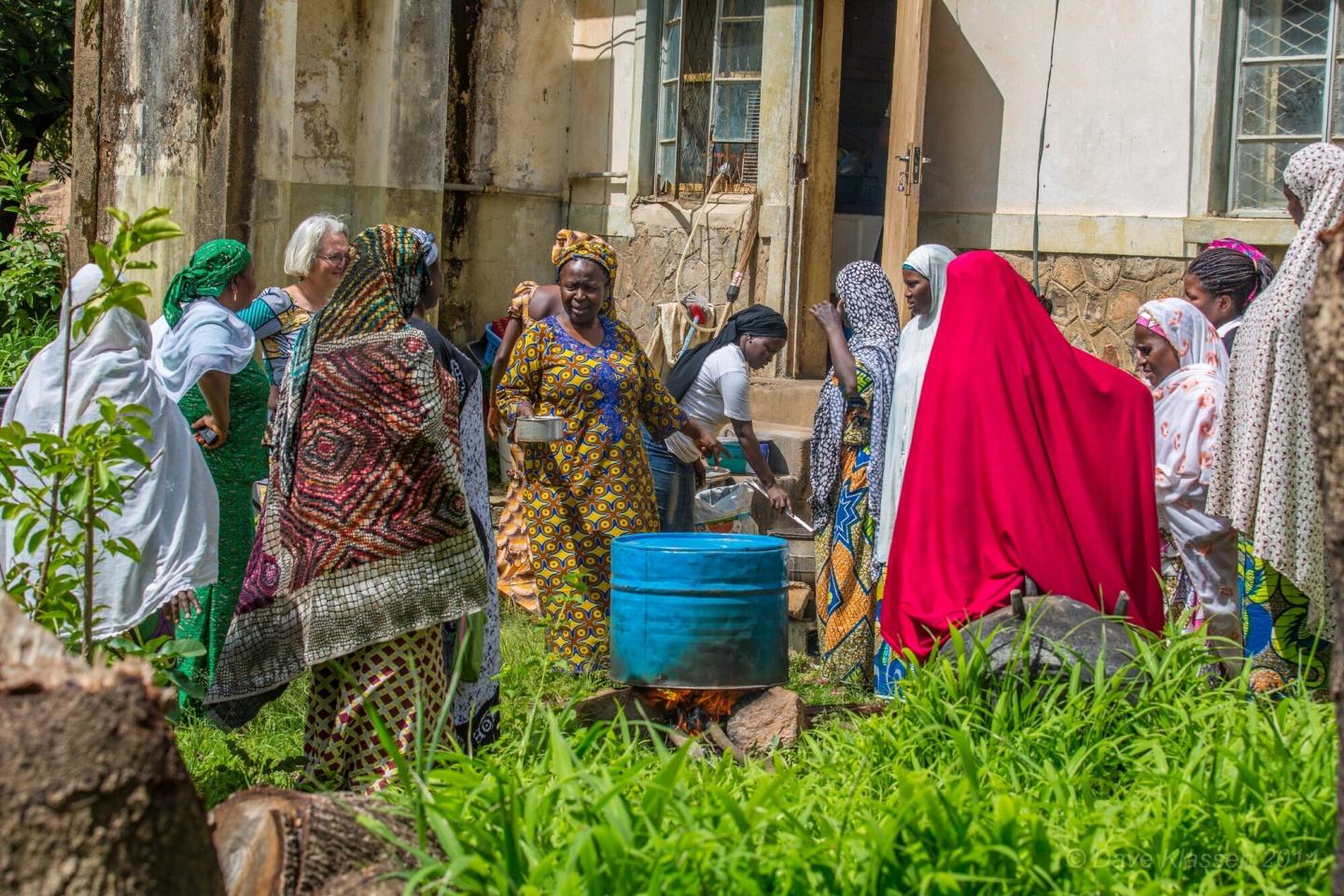
"It is really a simple idea. Grassroots women want to survive. Margaret offers them a chance to learn home-based income generating skills – but together as an interfaith group. Not only do they come together for monthly discussions and skills training, they also commit to praying once a month for peace," noted Mary Lou Klassen. She and her husband Dave Klassen served as MCC representatives in Nigeria.
...and amplify a call for justice.
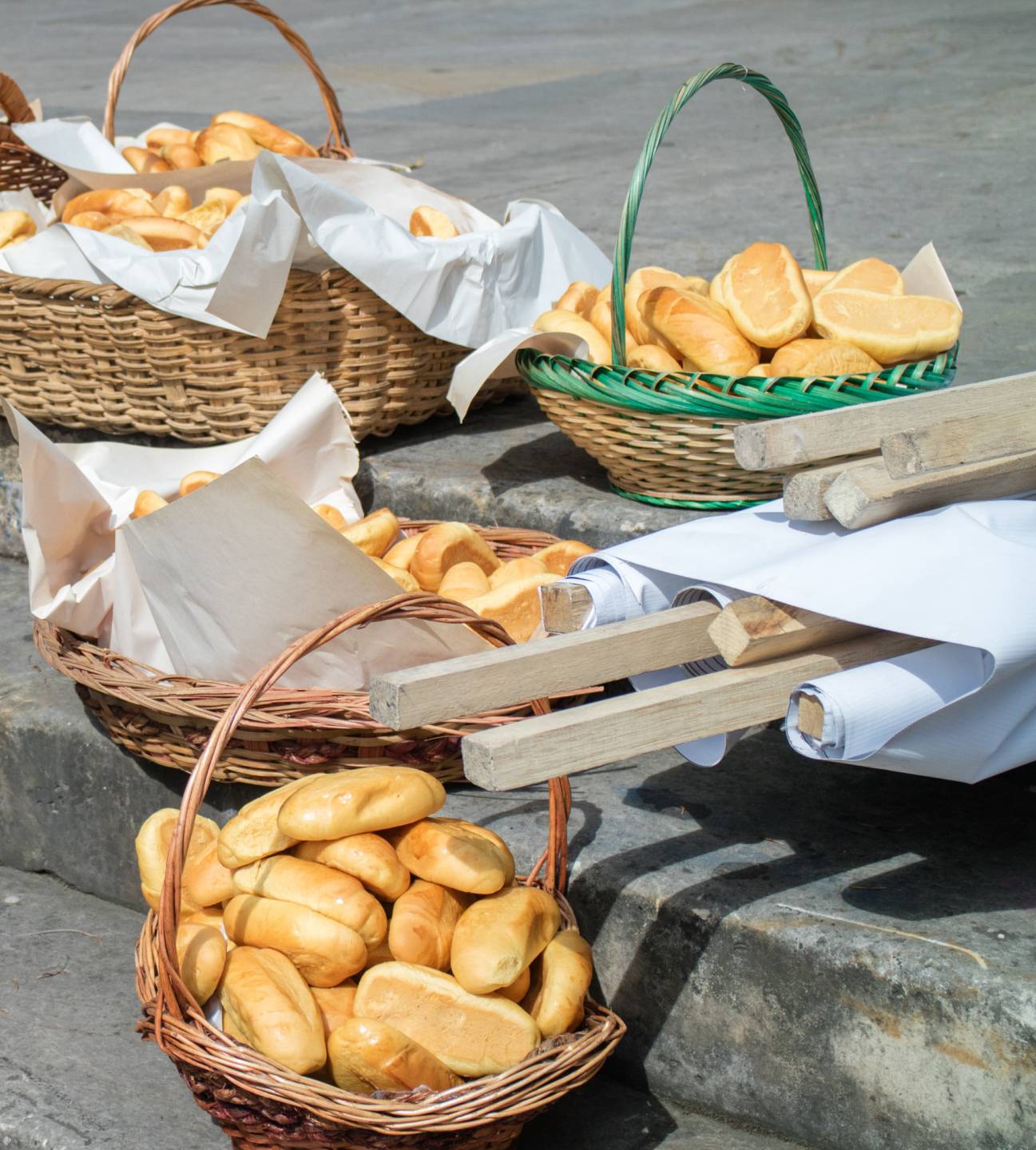
Each year since 2002, on September 21, the International Day of Peace, Colombian Anabaptists celebrate Pan y Paz or Bread and Peace. They march in the streets and hand out bread, reminding those they meet that peace is not possible without social justice. Peace must be accompanied by bread. They call on the Colombian government to implement just economic policies that ensure there is enough for everyone. And as they share bread with passersby and sing and speak, they’re also sharing their daily commitment to nonviolence and reflecting on the everyday implications of peacebuilding in contexts of violence and hunger.
Today, as we roll dough, pray for our daily bread or eat bread others have baked...
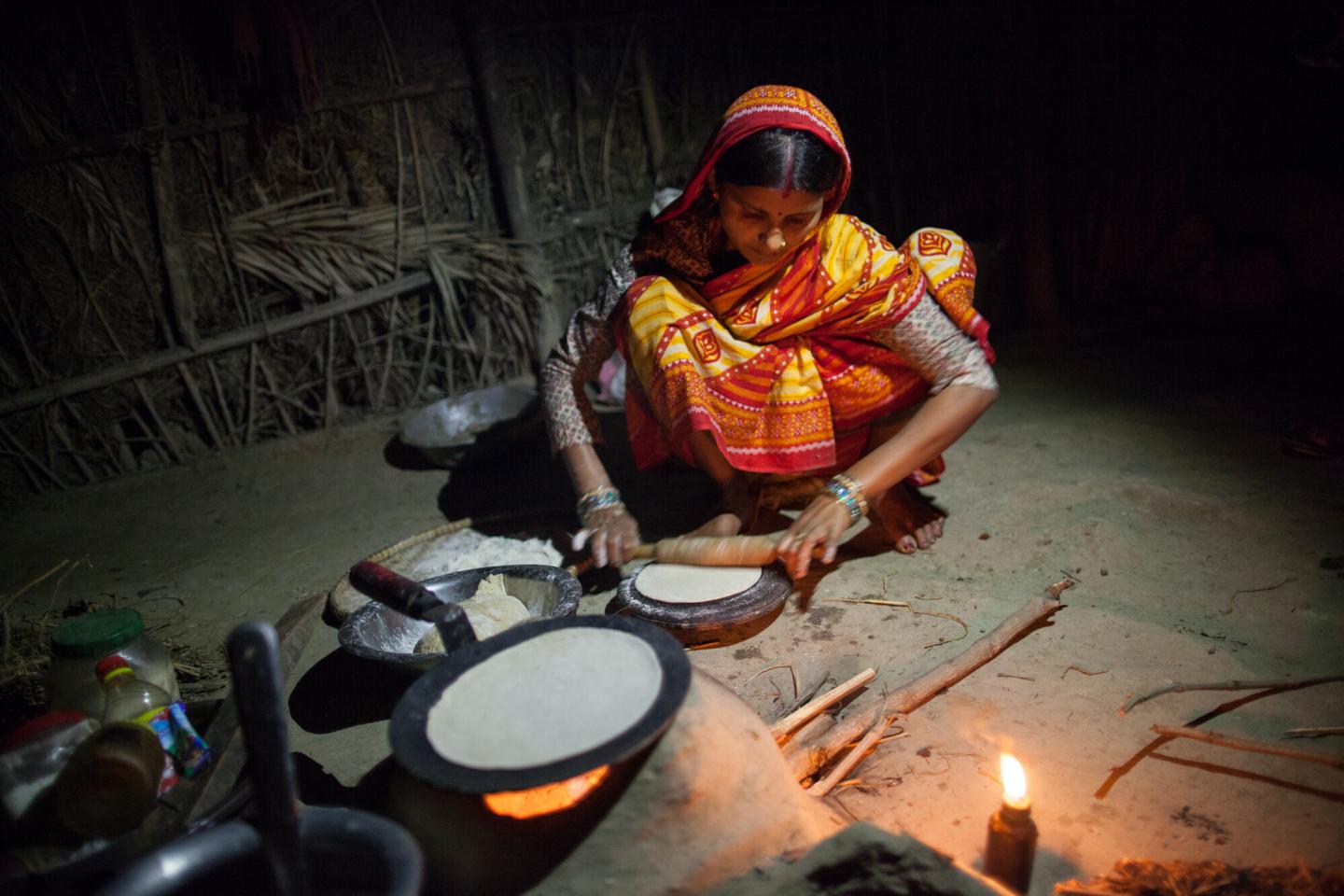
In a time of uncertainty, may we remember those who struggle for their daily bread and to keep their children nourished. In the Morang district of southeastern Nepal, local heatlh workers estimate half of children under 5 years of age don't weigh as much as they should. MCC partners with the Brethren in Community Welfare Service, the service arm of the Brethren in Christ church in Nepal, to provide training to people such as Mamta Devi Shah, shown above, in nutrition, gardening and small-scale farming.
...may we remember with gratitude Christ's promise to be the bread of life.
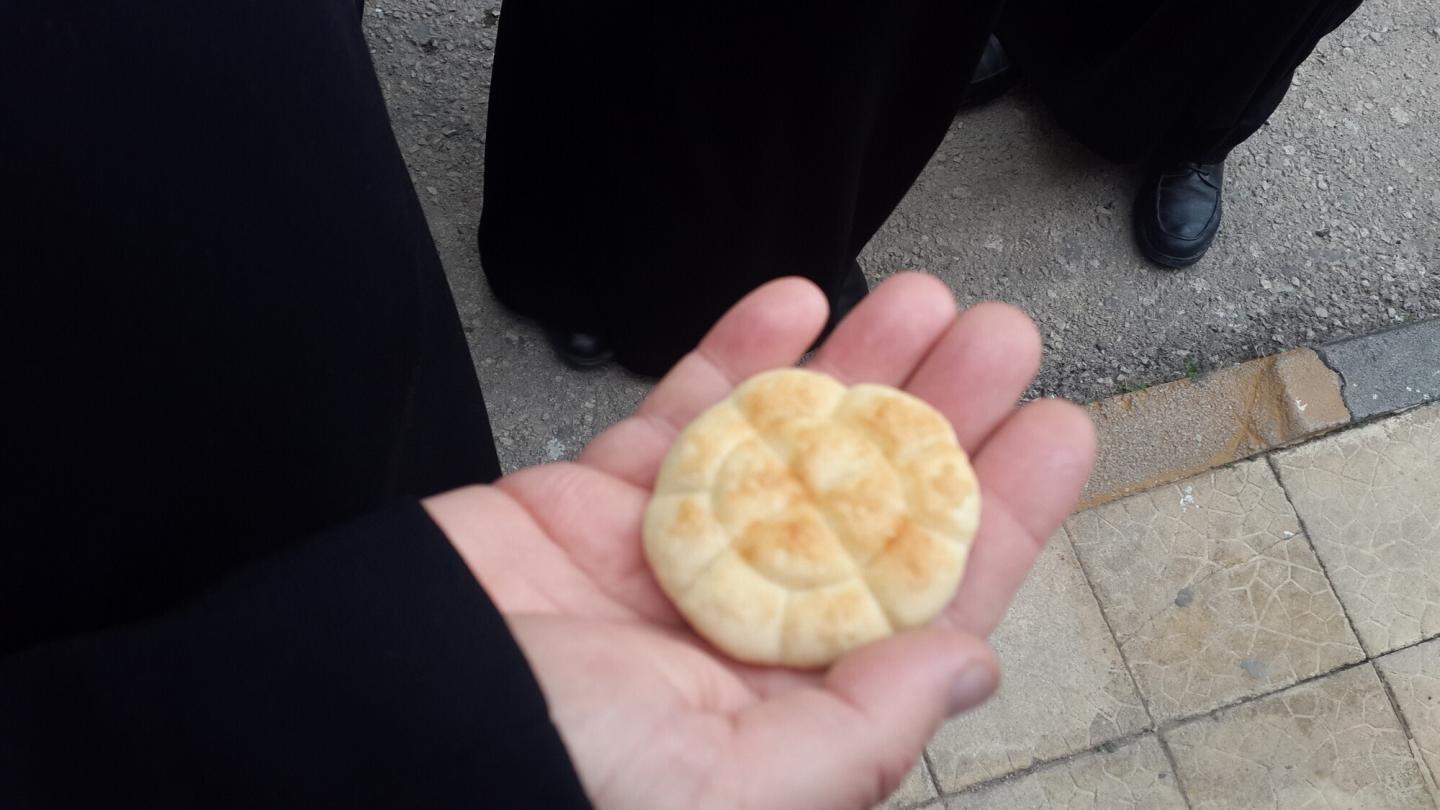
And we give thanks for the hope that Christ brings, no matter the circumstances. In the 2017 photo above, Archbishop Selwanos Boutros Al Nemeh of Homs, Syria, and the Syrian Orthodox Church, holds communion bread. "All we can do is try to give hope," he shared during an MCC visit in 2017.
Need more bread inspiration?
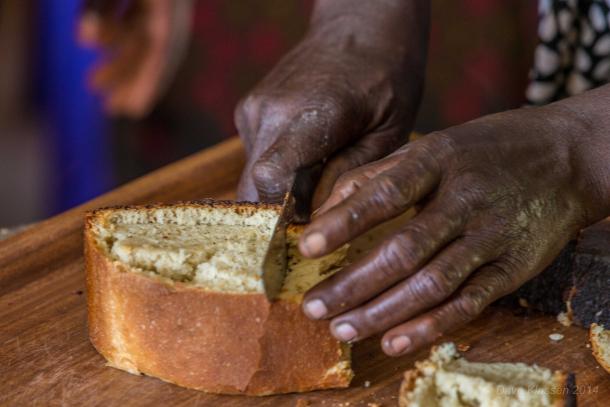
Try a Latin American table grace...
We invite you to experience this Latin American table grace, often used at MCC and MCC partner gatherings in countries from Guatemala to Colombia, and sung by Saulo Padilla, MCC U.S. immigration education coordinator.
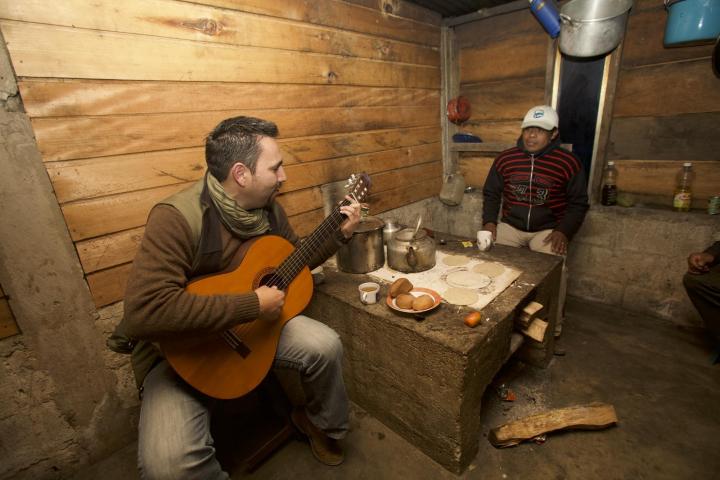
Here is the prayer in English. We invite you to consider praying it at a meal this week.
Thank you, Lord, for this bread.
And give bread to all those who hunger.
And a hunger for justice to those of us who have bread.
Thank you, Lord, for this bread.
...or a 1976 recipe for French bread.
Check out this French bread recipe from the 1976 More-with-Less Cookbook.
